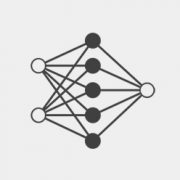Wadhwani AI was established to solve large-scale societal problems and create sustainable impact using the power of AI. Through our Strategic Programs initiative, we enable different functions of the government to become AI-ready.
Our work includes support for strategy, policy and capacity building – We facilitate AI solutions and other technical deliverables, as well as technical support units. We partner closely with State and Central governments to identify use cases, collect data, conduct pilots and deploy solutions.
Some of our ongoing programs include:
We have been supporting the NHA to explore use cases in Ayushman Bharat Pradhan Mantri Jan Arogya Yojana (PM-JAY) and AI-integration in the architecture and rollout of the National Digital Health Mission (NDHM).
We are working closely with MoHFW to support their E-health division and ideate and build AI-based solutions. In partnership with the University of Chicago and International Innovation Corps, we created the Wadhwani AI – IIC Fellows programme in 2020, where seven young professionals were selected and placed across divisions at the MoHFW and NHA.
At the State level, we work with governments of Maharashtra, Telangana, Gujarat, Rajasthan, Bihar, Orissa and Jharkhand, among others. Last year, the Government of Telangana launched the ‘2020 Year of AI’ initiative under the T-AIM (Telangana AI Mission). Dr. P Anandan, who retired in 2021, was appointed as a Governing Council member, along with other prominent representatives from the government, industry, and academia.
In 2020, we were core team members and contributors to the ‘FIRST Healthcare’ report, a strategy document and institutional framework for implementing AI in Healthcare. We are also a core part of their AI4AI initiative in Agriculture, which is being spearheaded in Telangana, with multiple other startups and organisations involved.

Wadhwani AI is a program of the AI Unit of the Lords Education and Health Society (LEHS)
© 2025 Wadhwani AI
ROLES AND RESPONSIBILITIES
An ML Engineer at Wadhwani AI will be responsible for building robust machine learning solutions to problems of societal importance; usually under the guidance of senior ML scientists, and in collaboration with dedicated software engineers. To our partners, a Wadhwani AI solution is generally a decision making tool that requires some piece of data to engage. It will be your responsibility to ensure that the information provided using that piece of data is sound. This not only requires robust learned models, but pipelines over which those models can be built, tweaked, tested, and monitored. The following subsections provide details from the perspective of solution design:
Early stage of proof of concept (PoC)
Late PoC
This is early to mid-stage of AI product development
Post PoC
Responsibilities during production deployment
We realize this list is broad and extensive. While the ideal candidate has some exposure to each of these topics, we also envision great candidates being experts at some subset. If either of those cases happens to be you, please apply.
DESIRED QUALIFICATIONS
Master’s degree or above in a STEM field. Several years of experience getting their hands dirty applying their craft.
Programming

ROLES AND RESPONSIBILITIES
As an ML Scientist at Wadhwani AI, you will be responsible for building robust machine learning solutions to problems of societal importance, usually under the guidance of senior ML scientists. You will participate in translating a problem in the social sector to a well-defined AI problem, in the development and execution of algorithms and solutions to the problem, in the successful and scaled deployment of the AI solution, and in defining appropriate metrics to evaluate the effectiveness of the deployed solution.
In order to apply machine learning for social good, you will need to understand user challenges and their context, curate and transform data, train and validate models, run simulations, and broadly derive insights from data. In doing so, you will work in cross-functional teams spanning ML modeling, engineering, product, and domain experts. You will also interface with social sector organizations as appropriate.
REQUIREMENTS
Associate ML scientists will have a strong academic background in a quantitative field (see below) at the Bachelor’s or Master’s level, with project experience in applied machine learning. They will possess demonstrable skills in coding, data mining and analysis, and building and implementing ML or statistical models. Where needed, they will have to learn and adapt to the requirements imposed by real-life, scaled deployments.
Candidates should have excellent communication skills and a willingness to adapt to the challenges of doing applied work for social good.
DESIRED QUALIFICATIONS
